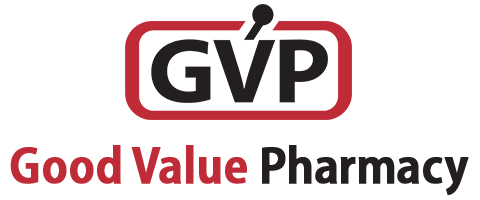 As the days keep getting shorter, does it feel as though there are fewer than 24 hours in a day? With the holidays right on the horizon, there’s so much to think about and so much to do. Here are a few end-of-year reminders to make sure your health—and your pocketbook—doesn’t get the short end of the stick.
As the days keep getting shorter, does it feel as though there are fewer than 24 hours in a day? With the holidays right on the horizon, there’s so much to think about and so much to do. Here are a few end-of-year reminders to make sure your health—and your pocketbook—doesn’t get the short end of the stick.
1. Get your flu shot. If you’re like many people, getting a flu vaccination can easily slip your mind. But a flu shot is too important to get bumped to the bottom of your priority list. Every flu season is different, and every person responds to the flu in a different way. The flu can lead to hospitalizations and even death. The flu season often begins in October, so there’s no better time than the present.1
2. Plan for Medicare open enrollment. Every year, the open enrollment for Medicare is October 15 through December 7. This is when you can change your health plan and prescription drug coverage. You can get more information here: Call 1-800-MEDICARE or go towww.medicare.gov.2 You’ll find a wealth of resources to help you compare hospitals, doctors, drug plans, and other health care services. But if you need more help making comparisons and choices, we can help. Just ask.
3. Switch to generics. Generic medications are identical to brand-name drugs in dosage, form, safety, strength, route of administration, quality, performance traits, and intended use. Here’s how they’re different: They’re usually much less expensive than brand-name drugs. Not all medications have a generic equivalent for a brand-name drug. One way to find out is to go to Drugs@FDA.3 Or, we can also talk this over.
Switching to a generic medication might put a few (maybe more than a few) extra dollars back in your pocket. Wouldn’t it be nice to have a little extra money for the holidays—or to use however you choose?
4. Use or lose it. Do you have a flexible spending account (FSA)? This is a special account you put money into to pay certain out-of-pocket health costs. That might include copayments, deductibles, drugs, and other health care costs. Limited to $2,550 each year, this money is not taxable.4
If you have an FSA, now is the time to use up your health benefit dollars—or you’ll lose them! Schedule eye or medical checkups before the end of the year. Some employers make allowances, though. So check to see if you have a grace period for using up the money or if you can carry over a limited amount of funds to the next year.4
5. Schedule a “tune-up.” Why not schedule a meeting with one of our pharmacists to see if your medications are working as well as they can for you? We can help you come up with ways to remember to take your drugs and to order refills—before you run out. Not happy with your drug’s side effects? Both your doctor and our pharmacists can work with you to adjust your dose or to find a substitute. There’s no need for you to suffer in silence.
Nothing herein constitutes medical advice, diagnosis or treatment, or is a substitute for professional advice. You should always seek the advice of your physician or other medical professional if you have questions or concerns about a medical condition.
Sources
1. CDC: “Key Facts About Seasonal Flu Vaccine.” Available at: http://www.cdc.gov/flu/protect/keyfacts.htm Accessed 8-27-15.
2. CMS.gov: “Open Enrollment Center.” Available at: https://www.cms.gov/center/special-topic/open-enrollment-center.htmlAccessed 8-27-15.
3. FDA: “Generic Drugs: Questions and Answers.” Available at:http://www.fda.gov/Drugs/ResourcesForYou/Consumers/QuestionsAnswers/ucm100100.htm Accessed 8-27-15.
4. Healthcare.gov: “Using a Flexible Spending Account (FSA).” Available at: https://www.healthcare.gov/flexible-spending-accounts/Accessed 8-27-15.
